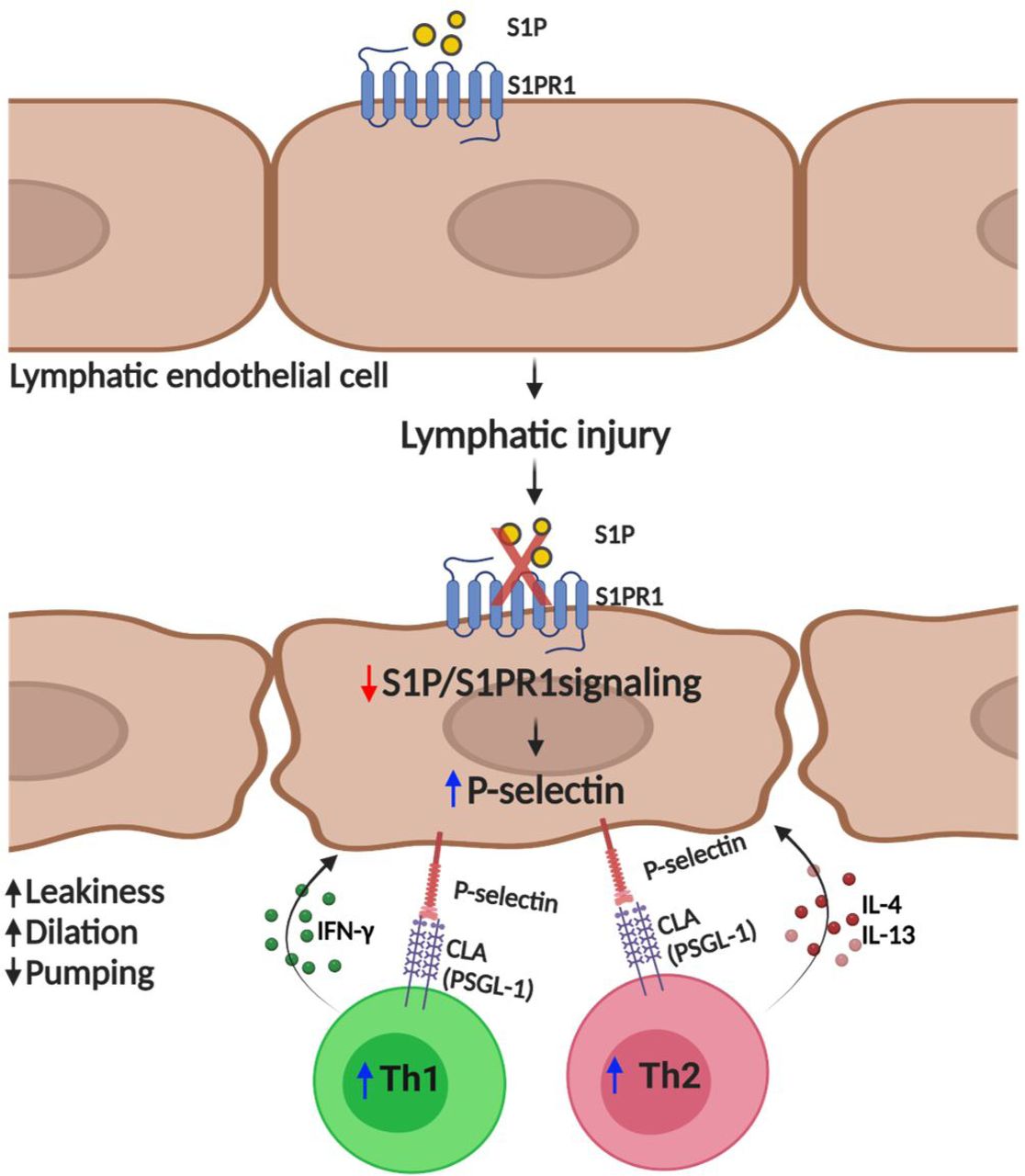Docket #: S22-525
P-Selectin Inhibition as a Treatment for Lymphedema
The Nicolls Lab at Stanford University has discovered P-selectin inhibitors as a possible treatment for lymphedema. Lymphedema affects more than 200 million people in the world and currently has no approved pharmacological therapies. The Nicolls Lab's human and mouse lymphedema research demonstrated reduction of the lymphatic endothelial cell (LEC) Sphingosine-1-phosphate (S1P) signaling aggravates lymphedema by enhancing LEC adhesion and amplifying pathogenic CD4 T cell responses.

LEC S1PR1 signaling in lymphedema pathogenesis
Graphic abstract showing how abnormal lymphatic endothelial cell (LEC) S1P signaling can induce T cell activation and lymphedema after lymphatic injury. Lymphatic injury caused LEC S1P-S1PR1 signaling reduction. These changes collectively induce P-selectin expression on LECs resulting in CD4 T cell overactivation. Image courtesy the Nicolls Lab.
The lab induced lymphedema in mice by surgically ligating the tail lymphatics. Lymphedematous dermal tissue was assessed for S1P signaling and animals were treated with a monoclonal antibody specific to P-selectin to assess efficacy in reducing lymphedema and T cell activation. P-selectin-directed antibody treatment improved tail swelling, decreased LEC S1P signaling through S1PR1, reduced Th1/Th2 immune responses in mouse lymphedema, and human and experimental lymphedema tissues LEC S1P signaling through S1PR1decreased. This study describes how lymphedema-associated immune dysregulation may be linked to reduced LEC S1P signaling and how P-selectin inhibitors, already approved for use in other diseases, may be effective in this otherwise refractory condition.
Stage of Development – Research in vivo
Future research includes developing and testing a safe P-selectin inhibitor to conduct clinical trials.
Applications
- Pharmacological lymphedema treatments
Advantages
- Unmet medical need for pharmacological therapy
Publications
- Kim, D., Tian, W., Wu, T. T. H., Xiang, M., Vinh, R., Chang, J. L., Gu, S., Lee, S., Zhu, Y., Guan, T., Schneider, E.C., Bao, E., Dixon, J.B., Kao, P., Pan, J., Rockson, S., Jiang, X., & Nicolls, M. R. (2023). Abnormal lymphatic S1P signaling aggravates lymphatic dysfunction and tissue inflammation. medRxiv, 2023-06.
Similar Technologies
-
Cell-type specific enzymatic degradation of pathological mucins S21-461Cell-type specific enzymatic degradation of pathological mucins
-
Therapeutic monoclonal antibodies for AML and other cancers S13-497Therapeutic monoclonal antibodies for AML and other cancers
-
Use of Verteporfin to Modulate Wound Healing After an Ocular Surgical Procedure or Ocular Injury S21-314Use of Verteporfin to Modulate Wound Healing After an Ocular Surgical Procedure or Ocular Injury